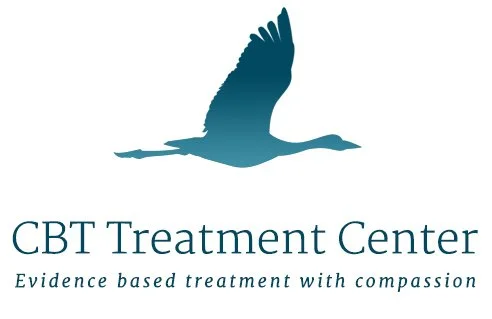
OCD Therapy for Adults
Are Compulsive Thoughts And Fears Controlling Your Life?
Has your Obsessive-Compulsive Disorder (OCD) become a “monster” that’s in control of seemingly everything you think and do? Do daily rituals and compulsions take up hours of your time, preventing you from living the life you want? Are you ready to be released from the thoughts that keep you trapped in fear and find a new path forward?
When you live with OCD, it can feel like your life is not your own. Your obsessive thoughts may be all-consuming, controlling what you do as well as what you avoid. Even though you don’t align with these thoughts, they are in charge, compelling you to perform rituals to maintain your sense of safety.
Living With OCD Is A No-Win Situation
As much as you want to stop engaging in your compulsions, the overwhelm and anxiety of not doing what your “OCD monster” tells you can be worse. If you try to avoid the compulsion, then you have to live with the fear of the bad consequences you will face as a result. Either way, you feel stuck, hopeless, and emotionally exhausted.
Avoidance may be a trusty sidekick to your compulsions and be playing a larger role in your life. To keep fear at bay, you may need to avoid situations that your monster has deemed too risky—such as driving or going to restaurants. As fear closes in on you, your world may be getting increasingly smaller which in turn could be robbing you of enjoyment as well as alienating your loved ones.
Wouldn’t you love to break the chains of OCD and regain control of your life? With OCD treatment for adults, you can work with a therapist who understands what you’re struggling with and learn how to manage the compulsions that are holding you back.
OCD Is Often Misunderstood In Our Culture
According to the National Institute of Mental Health (NIMH), the “lifetime prevalence of OCD among U.S. adults is 2.3 percent. And among adults with OCD, approximately one half (50.6 percent) will have a serious impairment.”[1] While that number may seem small, it represents approximately 5.6 million Americans.
Because not much is known about OCD within the general public—other than what we’ve seen in movies or read in books—it’s widely misunderstood and misappropriated. For example, on social media posts, someone who organizes their books by color might add a tongue-in-cheek comment like “my OCD made me do it”. Making OCD a cute punch line to what is in fact a serious mental health disorder only serves to perpetuate confusion about how serious it is. For those who live with the pain this disorder causes, joking about it can diminish their experience.
Receiving Improper Treatment For OCD Can Backfire
The symptoms of OCD are commonly mistaken for other mental health conditions. As a result, it is often misdiagnosed, sometimes for years. When OCD isn’t properly diagnosed or treated, a care provider might recommend a “solution” to a fear that ends up feeding the beast and making it grow even bigger. Sadly, many OCD sufferers who seek professional help end up having their behaviors reinforced by treatments that, unwittingly, establish a new ritual without addressing the underlying fear.
Fortunately, the therapy I offer is an effective treatment for adults who suffer from OCD. Utilizing Exposure and Response Prevention (ERP), you can finally gain the necessary skills to release fear and move away from compulsions, habits, and rituals.
The Right Treatment Gives Adults The Tools They Need For Managing OCD
Even though you know your OCD thoughts are irrational and the actions you’re compelled to take aren’t necessary, right now it probably feels too scary not to do them. More than anything, you want to resist these urges and reclaim your life. With treatment customized for adults who may have lived with OCD for a long time, obsessive thoughts, compulsions, and rituals no longer have to define who they are.
Therapy helps you understand what’s going on in your brain that causes OCD to thrive. Working collaboratively, we can diminish the effects of OCD. By building mastery to overcome the urges and accept the resulting feelings of anxiety you will experience, you will gradually realize that you can live with anxiety despite OCD’s best efforts to make you think otherwise.
What To Expect In Sessions
Initially, we will spend time examining how your OCD manifests and affects your daily routine as well as what the feared consequences of not engaging in the compulsion or ritual are. Once we understand these things, I will tailor treatment to your needs while making sure our goals are aligned with your life values. For example, if you’re avoiding driving and it’s impeding your ability to visit loved ones, our goal will be to get you driving without experiencing debilitating fear anymore.
ERP Therapy For OCD
Exposure and Response Prevention (ERP) is the gold standard of treatment for OCD.[2] ERP will help you reduce the intensity of OCD by gently facing your fears within the controlled therapeutic environment. In this way, we will help retrain your brain to break out of the fear-avoidance cycle it is currently trapped in. By identifying the core fear and providing you with ways to manage it, the thoughts that underlie OCD will become less scary, and the behaviors you employ to deal with these fears less problematic.
I like to explain that OCD is like a light switch that has a dimmer—once you realize that the dimmer exists, all you have to do is learn how to use it. By the end of treatment, you will be empowered to know what to do whenever a new obsession or compulsion inevitably pops up. The goal will be to help you to become self-sufficient in navigating your OCD.
It might be scary to imagine facing your fears head-on through exposure, but this will be a collaborative effort where you remain in charge. We will structure treatment to reach your specific goals so that you will see tangible, trackable results as we proceed. And even though it might not seem possible to believe right now, OCD can be managed.
But You May Wonder Whether OCD Treatment For Adults Is Right For Your Family…
What if it’s me and not the OCD that’s really the monster?
When you live with OCD for a long time, it can be hard to discern where “you” end and your OCD thoughts begin. You may worry that you actually want to do the things that OCD is telling you to do, which can make you feel like you’re a horrible person. I understand that even expressing these thoughts aloud could be the hardest part of seeking therapy to address obsessive-compulsive disorder. But I assure you, you are not your thoughts—I dare you to tell me something I haven't heard before. Nothing will surprise me.
OCD therapy sounds expensive and time-consuming.
Understandably, you might have concerns about the time and money needed to work with a trained OCD therapist. However, OCD treatment customized for adults is a worthwhile investment in yourself. With ERP, it’s possible to make breakthroughs that have the potential to be life-changing. Committing to an hour per week of therapy can help you bring your OCD symptoms into check. And after all, you can’t put a price on your mental health.
How can I be sure that OCD therapy will work this time?
The average person with OCD goes 12 years misdiagnosed with other anxiety disorders.[3] What’s more, many people undergo OCD counseling with a therapist who is unfamiliar with ERP only to find that they only experience short-term relief or, confoundingly, end up with rituals that reinforce their compulsive thoughts. ERP is effective in treating OCD. [4][5] Through gentle exposure, it works differently than other therapies to help diminish the fears that fuel compulsive thoughts and behaviors.

Giving OCD Treatment Another Chance Can Make All The Difference
Overcoming your internal mind battles and regaining control is possible. Wouldn’t you love to get your life back on track? To schedule a free consultation to learn more about OCD treatment for adults, please contact us.
https://www.nimh.nih.gov/health/statistics/obsessive-compulsive-disorder-ocd#part_2581
Foa, E. B., & Kozak, M. J. (1996). Psychological treatment for obsessive-compulsive disorder. In M. R. Mavissakalian & R. F. Prien (Eds.), Long-term treatments of anxiety disorders (pp. 285–309). American Psychiatric Association.
https://mantracare.org/ocd/ocd-diagnosis/ocd-misdiagnosed/#Why_Is_OCD_Misdiagnosed
https://www.nimh.nih.gov/health/topics/obsessive-compulsive-disorder-ocd#:~:text=Psychotherapy%20can%20be%20an%20effective%20treatment%20for%20adults,be%20as%20effective%20as%20medication%20for%20many%20individuals.
Foa, E. B., & Kozak, M. J. (1996). Psychological treatment for obsessive-compulsive disorder. In M.R. Mavissakalian & R. F. Prien (Eds.), Long-term treatments of anxiety disorders(pp. 285–309).American Psychiatric Association.




